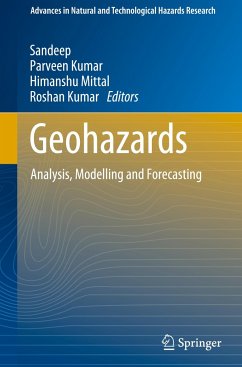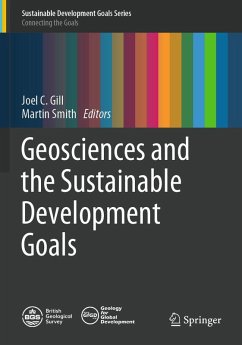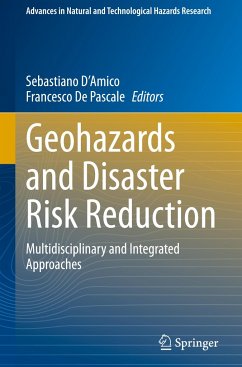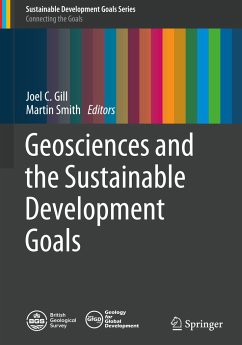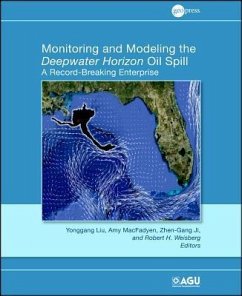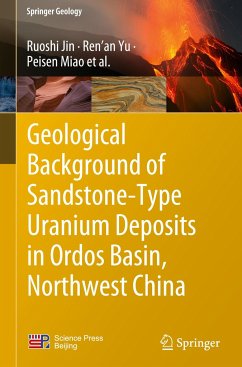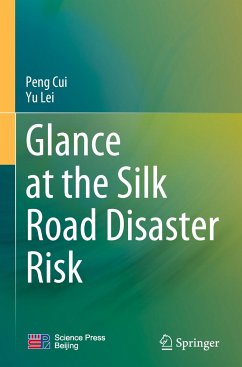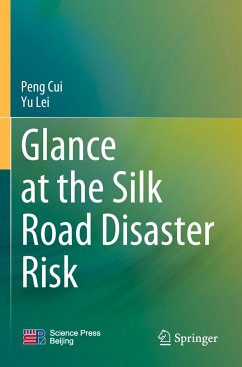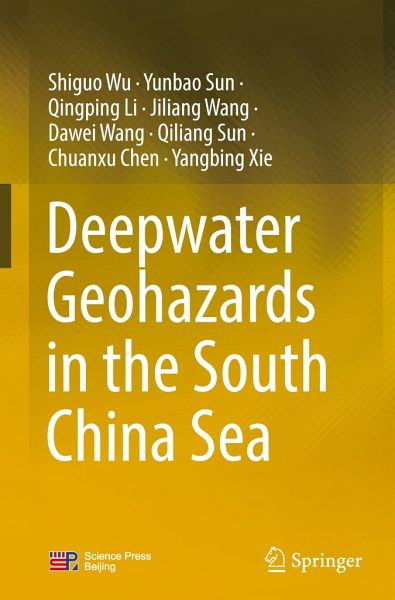
Deepwater Geohazards in the South China Sea
Versandkostenfrei!
Versandfertig in 6-10 Tagen
Weitere Ausgaben:

PAYBACK Punkte
57 °P sammeln!




This book comprehensively analyzes and summarizes the types, characteristics and prevention of deep-sea geological disasters in the South China Sea based on the research progress of global background. It also brings attention to the general public and stakeholders the risks of deep-sea geological disasters.
Shiguo Wu is a professor at the Institute of Deep-Sea Science and Engineering at the Chinese Academy of Sciences. He received his doctoral degree from China University of Geoscience (Wuhan) and University of Hamburg in Germany. He is also a professor and a doctoral supervisor at the University of the Chinese Academy of Sciences. He is a distinguished professor of Taishan Scholars of Shandong Province and is at the first level of the "515 Talent Project" in Hainan Province. He is a recipient of State Council allowance and had been a mobile researcher at the Japan Science and Technology Department. He was awarded Special Prize for Scientific and Technological Progress of Hainan Province and Zhu LiYueHua Excellent Teacher Award of Chinese Academy of Sciences. He is the chairman of Geophysical Society of Hainan Province. Sun Yunbao received his Ph.D. at the Institute of Oceanology, University of Chinese Academy of Sciences in 2011. He is currently an associated research professor with Qingdao Institute of Marine Geology, Qingao, China since 2011. His research interests and areas are numerical simulation of the overpressure in the deep-water and seismic imaging on unconsolidated sediments containing gas hydrate and shallow gas. And now he has published 20 papers on deepwater geohazards. Li Qingping received a master's degree in fluid machinery from Xi'an Jiaotong University in 1994 and a doctor's degree in mechanical design and theory from China University of Petroleum (Beijing) in 1998. She is the process chief engineer of the Technology Research Dept., CNOOC Research Institute Ltd., the executive deputy director of the Deepwater Engineering Key Laboratory, a national expert in the millions of talents project and a State Department special allowance expert. She is a senior expert in offshore engineering with more than 20 years of experience in offshore engineering design and research. She is mainly responsible for technical research in the field of deepwater flow assurance, marine natural gas hydrate and subsea production system. She has led the establishment of deepwater gas field flow assurance technology system and experimental system in China, promoted the application of subsea production system in Liwan 3-1, Lingshui 17-2 and other oil and gas fields and related technology research. She led the field direction of trial production technology and risk assessment technology of marine natural gas hydrate and led the team to carry out the first global trial production of marine natural gas hydrates through solid fluidization in 2017. Mr. Jiliang Wang received his Ph.D. at the Institute of Oceanology, University of Chinese Academy of Sciences in 2015. He is currently an associated research professor with the Institute of Deep-Sea Science and Engineering (IDSSE), Chinese Academy of Sciences. His major focuses on seismology and marine gas hydrate reservoirs and geohazards. And he haspublished more than 30 scientific papers on geophysics and geohazards. Wang Dawei received his Ph.D. at Geological Resource and Geological Engineering, School of Resource and Information, China University of Petroleum in 200. He is currently a research professor at the Institute of Deep-Sea Science and Engineering (IDSSE), Chinese Academy of Sciences. His research interests and areas are deepwater geohazards, geomorphology, and seismic inversion technique, which include: (1) establishing deep-sea geohazard laboratory to test the petrophysical parameters of sediments; (2) identifying deep-sea geohazard using high-resolution seismic data, AUV multi-beam and bottom shallow profile; (3) developing in-situ monitoring equipment to test physical parameters of sediments and to evaluate the wellsite instability for deep-sea engineering, and (4) numerical simulating to simulate seafloor instability processes and predict geohazard. he has published more than 30 papers on deepwater geohazards. Sun Qiliang received his Ph.D. at the Institute of Oceanolo
Produktdetails
- Verlag: Science Press / Springer / Springer Nature Singapore / Springer, Berlin
- Artikelnr. des Verlages: 978-981-99-9691-9
- Seitenzahl: 312
- Erscheinungstermin: 4. Mai 2024
- Englisch
- Abmessung: 241mm x 160mm x 22mm
- Gewicht: 635g
- ISBN-13: 9789819996919
- ISBN-10: 9819996910
- Artikelnr.: 69561513
Herstellerkennzeichnung
Springer-Verlag GmbH
Tiergartenstr. 17
69121 Heidelberg
ProductSafety@springernature.com
Für dieses Produkt wurde noch keine Bewertung abgegeben. Wir würden uns sehr freuen, wenn du die erste Bewertung schreibst!
Eine Bewertung schreiben
Eine Bewertung schreiben
Andere Kunden interessierten sich für



